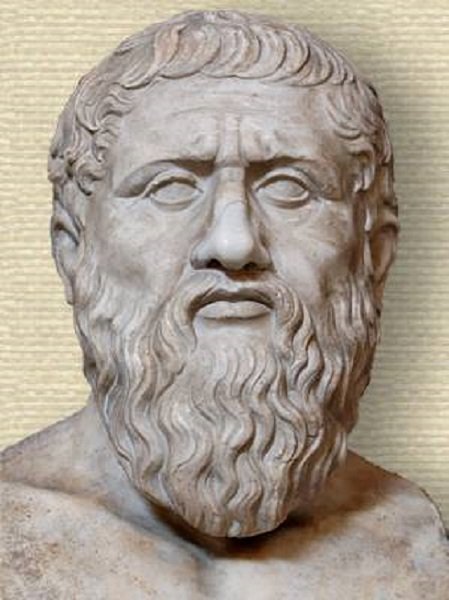Plato's philosophical method and his teaching of knowledge
Both the Socrates method and the Plato method are dialectical. The word dialectics is usually:
a) the importance of art to reveal the truth by confronting opposing views in a dispute between two or more persons;
b) The present meaning of the word dialectic as it is in Marxism is: a dialectic method of knowledge of nature that considers phenomena in nature as eternally moving and changing, and the development of nature as a result of unity and combat of contradictions, such as the result of mutual action between opposing forces in nature;
In Plato, the word "dialectic" has a very special meaning: a method in which a gradual rising through a contradictory, multifaceted and variable being leads to a true invariable being in the theoretical-cognitive plane. That is why Plato often calls it a "dialectical journey" of the mind through which it goes to the truth. While for Socrates the dialectic was the revelation of the essential and insignificant traits in order to come to certain lasting and defined in its notions concepts. For Plato, dialectics not only establishes lasting notions of the whole variety of things, but also seeks the foundations, the center from which this diversity comes from.
The path that makes Plato's dialectic has three moments:
a / the rising from the private and the specific through the species and the genus towards ever more generic generic notions and essences - the way of the abstraction / sonoronta / European, human, animal, organism;
b / descending from the general and the generic to the private, the species, the concrete one, which is obtained through the logical division and determination of the concepts;
c / checking each given definition in a variety of application cases to check its suitability for durability.
Plato's knowledge of knowledge is exposed primarily in Teette. First, Plato claims to Protagor that knowledge is equivalent to the feeling. As we know, this conviction of identity between sensation and knowledge has led Protagorus to full skepticism because he sees the relativity and variability of sensations, so Plato refutes this claim by saying that man has the ability to rise above the subjectivity and variability of sensations reaches real knowledge. Feeling and understanding / knowledge / are not the same thing. A speech in a foreign language can be understood without understanding it. Man has the ability to keep sensations in his mind and to compare and compare them. And this means that he is not completely subordinate and dependent on feelings: Whoever trusts only the sensations, he has things only "doza", and "pistis" /. We have a supposition when there is a sensual illusion, a hallucination, a reflection in a mirror and a smooth water surface, etc. We have beliefs and beliefs when we really and correctly perceive things, but here we also have relativity and variability.

Hello goldflesh really i like your philosphical content, as i am also the student of philosphy. Today i have posted about Ghandian philosophical thought about unemployment in India and its solution.